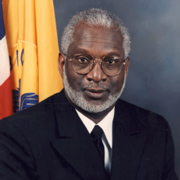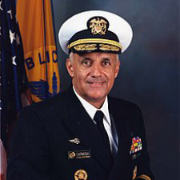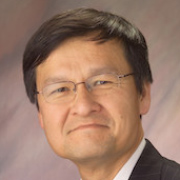Keynote Speakers

Satcher, MD, PhD

David Satcher, MD, PhD is a physician-scientist and public health administrator with an extensive track record of leadership, research, and community engagement. He is a Phi Beta Kappa graduate of Morehouse College and holds MD and PhD degrees from Case Western Reserve University, were he was also elected to Alpha Omega Alpha Honor Society. Dr. Satcher served as the 16 th Surgeon General of the United States (1998-2002) and the 10 th Assistant Secretary for Health in the Department of Health and Human Services (1998-2001). He also served as Director of the Centers for Disease Control and Prevention (CDC) and Administrator of the Agency for Toxic Substances and Disease Registry (ATSDR). Dr. Satcher has also held top leadership positions at the Charles R. Drew University for Medicine and Science, Meharry Medical College, and the Morehouse School of Medicine. He has received over 50 honorary degrees and has received numerous awards from diverse organizations and agencies. Currently, Dr. Satcher is the Founding Director and Senior Advisor for the Satcher Health Leadership Institute at the Morehouse School of Medicine, Atlanta, Georgia.

Carmona

Keynote Moderator

Lee, MD

Dr. Lee received his bachelor’s degree from Dartmouth College and his medical degree from Duke University’s School of Medicine. He completed a medical internship, residency and fellowships in Cardiology and Interventional Cardiology at Massachusetts General Hospital, part of Harvard Medical School, in Boston during which time he was selected as the Chief Resident. He is certified in cardiovascular disease by the American Board of Internal Medicine and he is a Fellow of American College of Cardiology (FACC) and Fellow of Society of Coronary Angiography and Intervention (FSCAI). An interventional cardiologist by training, Dr. Lee has focused his research and clinical interests on the role of stem cells in the treatment of coronary artery disease and catheter-based treatment of valvular disease. He also has been instrumental in advancing innovations in clinical care at UPMC and is recognized as an outstanding leader who is constantly pushing the envelope for new therapies to prevent cardiac-related problems and to support recovery from them. He has been a faculty member of University of Pittsburgh School of Medicine (UPSOM) and UPMC since 1996. He has served in various leadership roles during this time including Director of Interventional Cardiology, Director of Cardiac Catheterization Laboratory, Interventional Cardiology Fellowship Director, and Clinical Director of Cardiology. From 2013 through 2019 he served as Chief of the Cardiology Division for UPSOM. In 2011, when the UPMC Heart and Vascular Institute was founded, Dr. Lee was one of the inaugural Co-Directors and in 2017 he became its first Executive Director. In 2019 Dr. Lee was named chief medical officer of the UPMC Insurance Services Division, where he provided medical leadership for the clinical team, which serves the more than 4 million members of the UPMC insurance and health management companies. He also directed clinical innovation efforts to improve health outcomes and works to advance UPMC’s goals as an integrated delivery and financing system. In 2021, Dr. Lee was appointed Senior Vice President of UPMC and returned to the UPMC Health Services Division as President of Physician Services, where he leads over 2900 employed physicians including the faculty physicians of UPSOM.